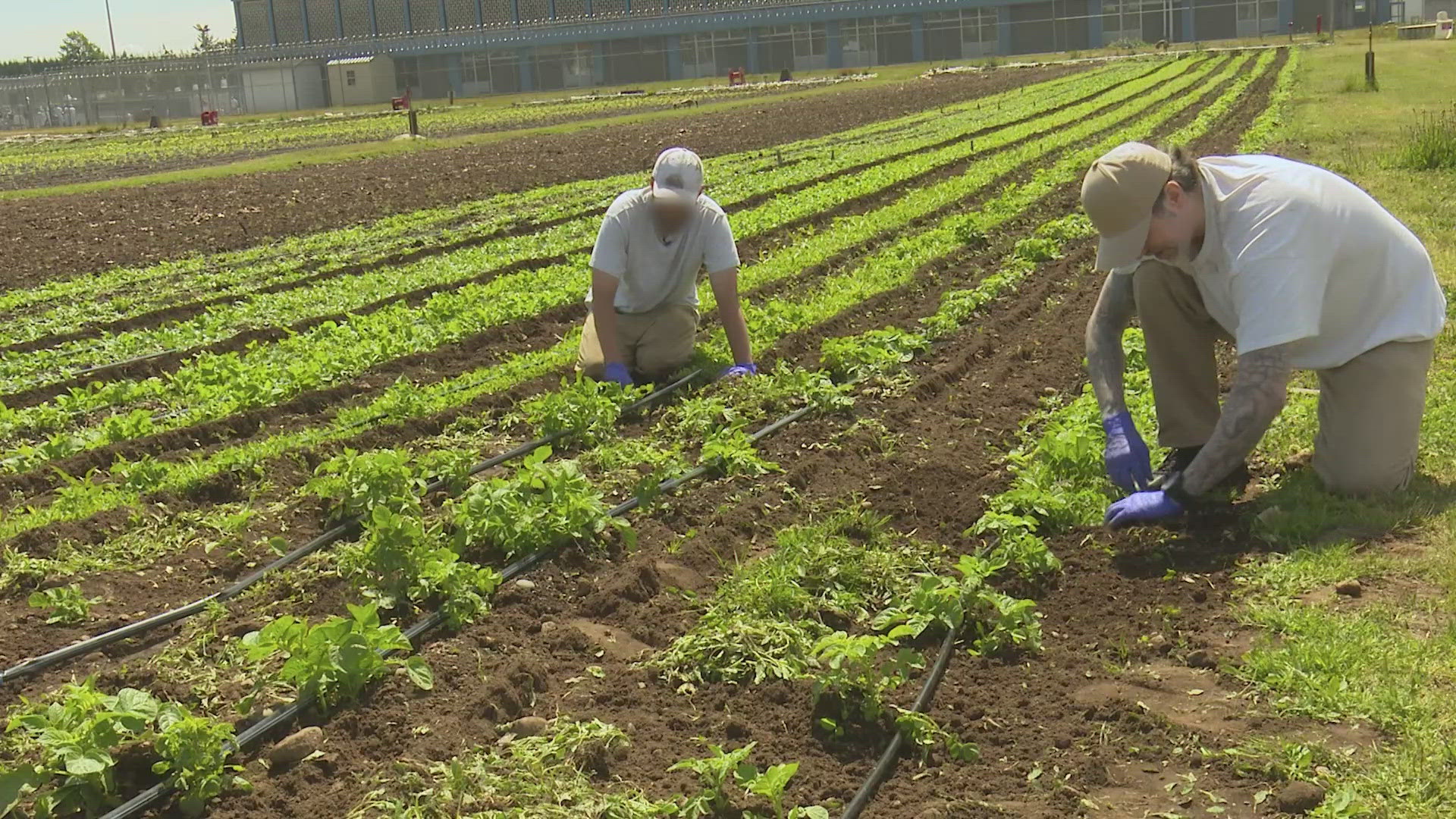SHELTON, Wash. —
A program within Washington’s Department of Corrections (DOC) is not only teaching incarcerated people useful skills, but also benefiting the surrounding community. Each year, the impact is growing.
The DOC taps into resources from nonprofit Harvest Now, which donates up to $500 worth of seeds to prisons with an agreement that 75% of produce grown will be donated to local foodbanks.
Benri Deanon has been overseeing the gardening program at Shelton’s prison for about 10 years now and said they’ve expanded their facilities to include four greenhouses and about 1.5 acres of plants.
They’ve watched their impact grow through the years with that expansion. The first donation from Shelton in 2014 yielded around 3,000 pounds of produce to local food banks, but the 2024 donation skyrocketed to nearly 18,000 pounds of food.
Benri said other DOC facilities have followed suit. Now, eight Washington prisons have gardening programs supplied by Harvest Now seed donations. In 2024, the prisons collectively donated a personal record of 68,504 pounds of produce grown from $3,000 in seed donations.
That food was donated to 14 different food banks in five counties around the state.
Benri said that while people are incarcerated, they are assigned jobs. He watches the inmates change when they get assigned to work in the gardens with him.
“A lot of them have negative attitudes when they come in here, all they want is a job and not to do work, but once they got their hands dirty and they can feel the fruits of their labor, they have that sense of fulfillment that I did something good. That’s what we want, something good,” said Benri.
Dustin Marks is one of the inmates assigned to the garden. He said in previous job assignments, he’d get in trouble. Since his garden assignment, he hasn’t had any infractions.
He said he’s glad to know they’re helping their local community while serving their time.
“I like to help the people out there and that’s what [Benri] likes to do. He donates it all out there and it’s good to know there’s people out there, especially right now with the fundings are cut and everything I see on the news every day for food banks,” said Dustin.
Benri added that they also grow succulents in their green houses and donated those plants to a local animal shelter to auction off. He said the fundraiser brought thousands of dollars to the shelter.
A DOC spokesperson said people incarcerated will eventually be released and become someone’s neighbor, and this program helps shape well-rounded people. Benri said he sees the excitement from these people and hears their stories of carrying this skill with them.
“I remember one of my workers said ‘man when I get out of here, my mom has been waiting for me and she wants me to start a garden for her so I’m going to do that,’” Benri said, adding that “I feel fulfilled that I was able to help all these individuals do something worthwhile and productive.”

